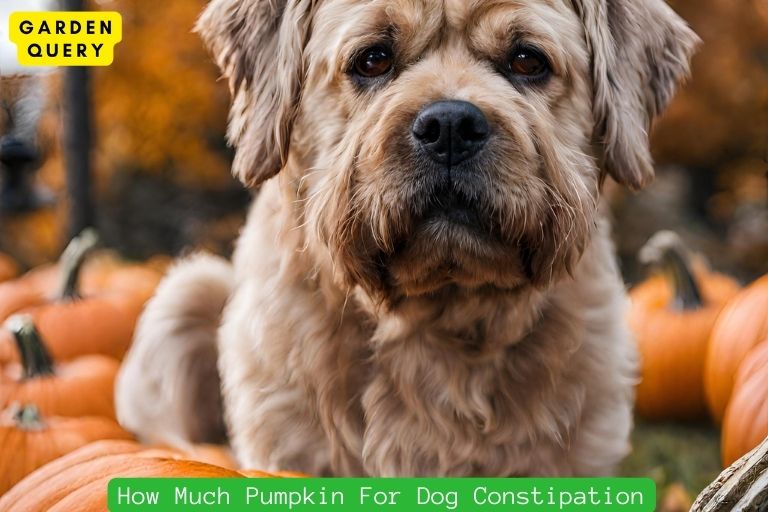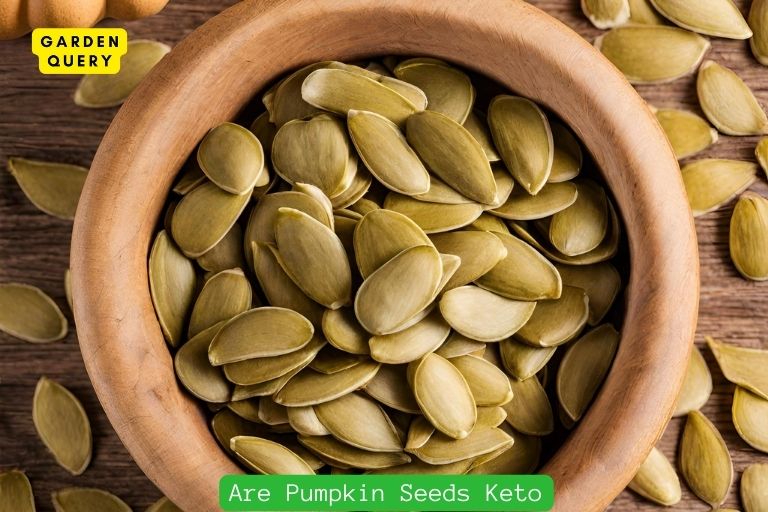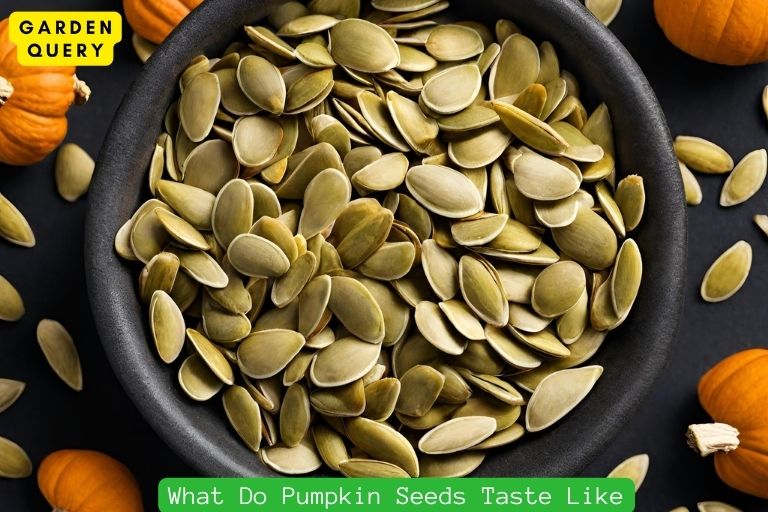How Much Pumpkin For Dog Constipation?
Dog Constipation
Causes of dog constipation
Dogs, just like humans, can experience constipation from time to time. Understanding the causes of dog constipation is important for pet owners to help prevent or manage this condition. Here are some common causes:

- Dietary issues: Inadequate fiber intake or a sudden change in diet can lead to constipation in dogs. Lack of hydration can also contribute to constipation.
- Lack of exercise: Dogs that are not getting enough exercise may have a slower digestive system, which can result in constipation.
- Obstruction or blockage: Foreign objects such as bones or toys can cause blockages in the digestive system, leading to constipation.
- Underlying medical conditions: Certain medical conditions such as anal gland problems, bowel obstructions, or neurological issues can cause constipation in dogs.
Symptoms and signs of dog constipation
It is important for pet owners to be able to recognize the signs of constipation in their dogs. Some common symptoms include:
- Straining: If your dog is spending a long time trying to have a bowel movement or is having difficulty passing stool, it may indicate constipation.
- Dry, hard stools: Constipated dogs often produce small, hard, and dry stools.
- Decreased appetite: Dogs with constipation may have a decreased appetite or show signs of discomfort while eating.
- Abdominal discomfort: Your dog may show signs of abdominal pain, such as whining, pacing, or a hunched posture.
- Lethargy: Constipated dogs may appear tired or have a lack of energy.
If you notice any of these signs in your dog, it is important to consult with your veterinarian for a proper diagnosis and treatment plan.
How Much Pumpkin for Dog Constipation
Pumpkin is a natural remedy that can be used to help relieve constipation in dogs. The high fiber content in pumpkin adds bulk to the stool, making it easier for your dog to pass. When using pumpkin for constipation, it is essential to feed the right amount.
The general rule of thumb is to feed your dog about 1 to 4 tablespoons of plain, canned pumpkin per meal, depending on their size. Smaller dogs may require a smaller amount, while larger dogs may need more. It is always advisable to start with a smaller amount and gradually increase if needed. Mixing the pumpkin with your dog’s regular food can also make it more appealing.
It is important to note that you should only use plain, canned pumpkin without any additives or sweeteners. Avoid using pumpkin pie filling, as it often contains sugar and spices that are not suitable for dogs.
While pumpkin can be a helpful home remedy for mild cases of constipation, it is always best to consult with your veterinarian for a proper diagnosis and advice on the appropriate treatment for your dog. They can assess the underlying cause of the constipation and recommend the best course of action.
Regular exercise, a balanced diet with adequate fiber, and proper hydration are also crucial for maintaining your dog’s digestive health and preventing constipation.
The Benefits of Pumpkin for Dog Constipation
When your furry friend is experiencing constipation, it can be a cause for concern. Fortunately, there is a natural and safe option that can help alleviate the issue – pumpkin!
How pumpkin can help relieve constipation in dogs
Pumpkin is a fantastic natural remedy for dog constipation. It contains high fiber content, which adds bulk to your dog’s stool, softening it and making it easier to pass. Additionally, pumpkin is packed with water, which helps to keep the digestive tract hydrated and promotes regular bowel movements. The combination of fiber and hydration makes pumpkin an effective solution for relieving constipation in dogs.
Not only does pumpkin help with constipation, but it also aids in overall digestive health. The fiber in pumpkin can regulate your dog’s bowel movements and promote a healthy digestive system. It can also help in firming up loose stools, making it a versatile remedy for different digestive issues.
Recommended serving size of pumpkin for dogs
The appropriate serving size of pumpkin for your dog depends on their size. As a general guideline, for small dogs weighing up to 15 pounds, one to two tablespoons of pumpkin puree can be added to their meals. For medium-sized dogs weighing between 15 to 35 pounds, two to four tablespoons are recommended. Larger dogs weighing over 35 pounds can benefit from four to six tablespoons of pumpkin.
It’s important to note that the pumpkin given to your dog should be plain and pureed. Avoid canned pumpkin pie filling, which may contain added sugar and spices that could be harmful to your furry friend. You can easily make your own pumpkin puree by steaming or boiling fresh pumpkin until soft, then pureeing it until smooth.
Introducing pumpkin into your dog’s diet should be done gradually to allow their digestive system to adjust. Start with a small amount and gradually increase it over several days until you reach the recommended serving size. If you have any concerns or your dog’s constipation persists, it’s always a good idea to consult with your veterinarian for further guidance.
Pumpkin is a natural and beneficial solution for dog constipation. Not only does it help to relieve constipation, but it also promotes overall digestive health. By incorporating pumpkin into your dog’s diet in the appropriate serving sizes, you can provide them with the relief they need and improve their overall well-being.
Other Natural Remedies for Dog Constipation
Constipation can be uncomfortable and distressing for dogs, but there are several natural remedies that can help alleviate the problem. Along with pumpkin, here are two other approaches you can try:
Increasing fiber in your dog’s diet
Fiber plays a crucial role in maintaining healthy digestion, and adding more fiber to your dog’s diet can help alleviate constipation. There are several sources of fiber that you can incorporate into your dog’s meals:
- Vegetables: Including vegetables like broccoli, carrots, and green beans in your dog’s meals can increase their fiber intake. However, it’s important to cook or puree these vegetables to make them easier for your dog to digest.
- Fruit: Fruits like apples, pears, and bananas are not only tasty but also rich in fiber. Ensure that you remove any seeds or pits before giving them to your dog, as they can be harmful.
- Grains: Whole grains such as brown rice and oats contain high amounts of fiber and can be a great addition to your dog’s diet. Cooked grains are easier for dogs to digest and can help soften their stools.
Ensuring proper hydration for your dog
Just like humans, dogs need to stay hydrated to maintain a healthy digestive system. Here are a few tips to ensure your dog is getting enough water:
- Provide fresh water: Ensure that your dog always has access to clean, fresh water. Regularly check their water bowl and refill it throughout the day.
- Add water to their meals: If your dog is not drinking enough water, you can try adding some water to their food. This can help keep them hydrated and soften their stools.
- Consider wet food: Wet food has a higher moisture content compared to dry kibble. If your dog is prone to constipation, incorporating wet food into their diet may help prevent the issue.
It’s important to note that if your dog’s constipation persists or if they experience additional symptoms such as vomiting or lethargy, it’s best to consult with a veterinarian for proper diagnosis and treatment.
In conclusion, pumpkin can be a helpful natural remedy for dog constipation, but there are also other options to consider. Increasing fiber in your dog’s diet through vegetables, fruits, and whole grains can help promote regular bowel movements. Ensuring proper hydration by providing fresh water, adding water to their meals, or incorporating wet food can also be beneficial. Remember to monitor your dog’s symptoms and consult with a veterinarian if needed to ensure their overall health and well-being.
Pumpkin Treat Recipes for Dog Constipation
Pumpkin and peanut butter treats
Is your furry friend experiencing constipation? Don’t worry, there’s a natural and delicious solution: pumpkin! Adding pumpkin to your dog’s diet can help alleviate constipation and improve their digestive health. Here’s a simple and tasty recipe for pumpkin and peanut butter treats that your dog will love.
Ingredients:
- 1 cup of canned pumpkin (make sure it’s plain pumpkin puree, not pumpkin pie filling)
- 1/2 cup of natural peanut butter (avoid brands that contain artificial sweeteners like xylitol, as it can be toxic to dogs)
- 2 cups of whole wheat flour
Instructions:
- Preheat your oven to 350°F (175°C) and line a baking sheet with parchment paper.
- In a large mixing bowl, combine the pumpkin and peanut butter until well blended.
- Gradually add the whole wheat flour, mixing until a dough forms. If the dough is too sticky, add a little more flour.
- Roll out the dough on a floured surface to about 1/4 inch thickness. Use cookie cutters to cut out shapes or simply use a knife to cut the dough into small squares.
- Place the treats on the prepared baking sheet and bake for 15-20 minutes, or until they are golden brown.
- Allow the treats to cool completely before giving them to your dog.
Pumpkin and oatmeal biscuits
If your dog prefers a crunchy treat for constipation relief, these pumpkin and oatmeal biscuits are perfect. Here’s how to make them:
Ingredients:
- 2 1/2 cups of rolled oats
- 1 cup of canned pumpkin
- 1/4 cup of honey
- 1/4 cup of water
- 1/4 cup of coconut oil, melted
Instructions:
- Preheat your oven to 350°F (175°C) and line a baking sheet with parchment paper.
- In a large bowl, combine the rolled oats, canned pumpkin, honey, water, and melted coconut oil. Mix well until all the ingredients are evenly combined.
- Take small portions of the mixture and roll them into balls, then flatten them to create biscuit shapes.
- Place the biscuits on the prepared baking sheet and bake for 25-30 minutes, or until they are golden brown and firm to the touch.
- Allow the biscuits to cool completely before giving them to your dog.
Remember to always consult with your veterinarian before introducing any new ingredients or recipes into your dog’s diet, especially if they have pre-existing health conditions or allergies. It’s also important to feed these treats in moderation, as too much pumpkin can have a laxative effect on dogs. Start with small portions and monitor your dog’s response before gradually increasing the serving size.
In conclusion, pumpkin treats can be a tasty and effective remedy for dog constipation. Whether you choose the pumpkin and peanut butter treats or the pumpkin and oatmeal biscuits, your dog will enjoy the added fiber and health benefits. Just remember to always prioritize your dog’s well-being and consult with your veterinarian before making any dietary changes.
When to Seek Veterinary Care
When dog constipation requires professional help
If your dog is experiencing constipation, it’s important to monitor their condition closely. While occasional mild constipation can be managed at home, there are situations where veterinary care is necessary. Here are some signs that indicate your dog may require professional help:
- Prolonged constipation: If your dog has been constipated for more than two days without passing any stool, it’s time to consult a veterinarian. Prolonged constipation can lead to serious health issues and should not be ignored.
- Visible distress: If your dog seems uncomfortable, is straining excessively to have a bowel movement, or shows signs of pain such as whimpering or yelping, it’s best to seek veterinary care. These symptoms could indicate a more severe underlying problem that requires medical attention.
- Loss of appetite or vomiting: If your dog is constipated and also experiencing a loss of appetite or vomiting, it could be a sign of an obstruction in their digestive system. This is a medical emergency and should be addressed by a veterinarian immediately.
Preventing future episodes of constipation
While occasional constipation can happen to any dog, there are steps you can take to prevent future episodes:
- Dietary adjustments: Ensure your dog’s diet is rich in fiber, as this promotes regular bowel movements. Talk to your veterinarian about adding fiber-rich ingredients such as pumpkin, sweet potatoes, or green beans to your dog’s meals.
- Hydration: Make sure your dog has access to fresh water at all times. Proper hydration helps keep the digestive system functioning smoothly and prevents dehydration, which can contribute to constipation.
- Regular exercise: Encourage regular exercise to keep your dog’s muscles and digestive system active. Physical activity helps stimulate bowel movements and promotes overall gastrointestinal health.
- Regular potty breaks: Provide your dog with regular opportunities to relieve themselves. This can help prevent stool buildup and constipation.
- Manage stress: Dogs, like humans, can experience stress that can impact their digestion. Create a calm and comfortable environment for your dog, and if necessary, consider stress-reducing techniques such as enrichment activities or behavioral training.
Remember, if you have any concerns about your dog’s health or if their constipation persists or worsens despite home care, it’s always best to consult with a veterinarian. They can provide an accurate diagnosis and recommend appropriate treatment to ensure your furry friend’s well-being.
Note: This article is for informational purposes only and should not replace professional veterinary advice. If you have any concerns about your dog’s health, seek guidance from a qualified veterinarian.
- Best Therapists In Dallas - February 1, 2024
- Holly Willoughby Husband: Holly Willoughby’s Love Story - January 30, 2024
- Holly Willoughby Dress: 5 Style Secrets and 7 Must-Know Career Milestones - January 30, 2024





